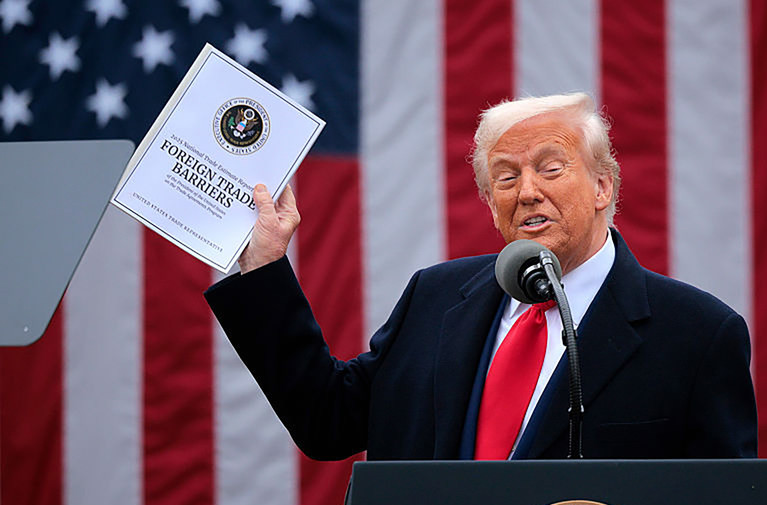Washington, D.C. – August 29, 2025 – As President Donald Trump’s second term escalates a global trade war with steep tariffs and aggressive negotiations, major U.S. law firms are reaping six- and seven-figure fees advising foreign governments and entities navigating the turbulent economic landscape. Firms like Squire Patton Boggs, K&L Gates, Akin, Ballard Partners, and Arnold & Porter have secured lucrative contracts in 2025, representing nations such as Cambodia, Pakistan, and others seeking to mitigate the impact of U.S. tariffs averaging 18.6% as of August, up from 2.5% before Trump’s policies took effect. These fees, driven by the complexity of trade agreements and lobbying efforts, highlight Big Law’s pivotal role in shaping international responses to Trump’s economic agenda, even as ethical and legal concerns swirl around some firms’ separate deals with the administration.
The Trade War’s Legal Boom
Trump’s trade policies, initiated in January 2025, have transformed the global economic order, with tariffs on steel, aluminum, cars, pharmaceuticals, and semiconductors disrupting supply chains and raising costs for foreign exporters. By July 2025, tariffs accounted for 5% of U.S. federal revenue, a sharp rise from the historical 2%. This aggressive stance, invoking powers under Section 232 of the Trade Expansion Act of 1962, has forced countries to seek expert legal counsel to negotiate exemptions, forge new trade deals, or counter U.S. demands. Law.com reported that firms are capitalizing on this “boom,” with Squire Patton Boggs and K&L Gates alone earning millions for advising clients like Cambodia on bilateral agreements announced in July 2025. For instance, Akin represented Cambodia in securing a trade deal with the U.S., navigating complex tariff exemptions.
The financial stakes are high. Squire Patton Boggs, with Trump-linked staff like former economic adviser Everett Eissenstat, has been subcontracted by entities like Orchid Advisors LLC for deals with Pakistan, focusing on mineral access and defense partnerships. Ballard Partners, known for its Republican ties, and Arnold & Porter have similarly secured contracts, with fees often tied to lobbying under the Foreign Agents Registration Act (FARA). These firms leverage deep rosters of Republican advisers, as noted by Hunter Bates of Akin, who described 2025 as an “even busier period” due to the trade war’s demands.
Ethical and Legal Tensions
While the financial windfall is undeniable, some firms face scrutiny for simultaneously engaging in controversial deals with the Trump administration to avoid punitive executive orders. In April 2025, nine firms, including Paul Weiss and Kirkland & Ellis, pledged nearly $1 billion in pro bono work to causes like veterans’ services and trade negotiations, allegedly to dodge orders barring them from federal contracts or courthouses. Democratic lawmakers, including Reps. Dave Min and April McClain Delaney, warned that these arrangements may violate 18 U.S.C. § 201 (bribery) or § 1951 (extortion), citing a potential quid pro quo. The New York Times reported that Paul Weiss and Kirkland are now assisting the Commerce Department for free, raising concerns about conflicts of interest when advising foreign sovereigns.
Firms like Squire Patton Boggs, which represents Pakistan while maintaining Trump connections, walk a tightrope. Their work with foreign entities, disclosed under FARA, includes advising on U.S. economic partnerships and counter-terrorism, but critics argue that proximity to Trump’s circle could compromise neutrality. Global Witness highlighted Pakistan’s deal with Squire Patton Boggs as part of broader agreements involving Trump associates like Keith Schiller, raising questions about whether these arrangements prioritize U.S. interests or personal gain.
Impact on Foreign Sovereigns and the Legal Market
For foreign governments, Big Law’s expertise is indispensable. Cambodia’s trade agreement, facilitated by Akin, mitigated a 25% tariff on its exports, preserving access to the U.S. market. Pakistan’s engagement with Squire Patton Boggs aims to secure military funding and mineral deals, navigating tensions in volatile regions like Balochistan. However, nations like Canada and Mexico, facing 25% tariffs over immigration and fentanyl issues, have struggled to counter Trump’s unpredictable demands, with a Japanese official lamenting, “No one knows what Trump wants to negotiate on.”
The legal market itself is shifting. Firms that resisted Trump’s orders, like Perkins Coie and WilmerHale, have gained clients wary of conflicts, while settling firms report resignations and client losses, per Newsweek. The trade war’s complexity ensures continued demand for legal services, but the ethical dilemmas—balancing profit, client loyalty, and compliance with federal law—will shape Big Law’s role as Trump’s policies unfold.
